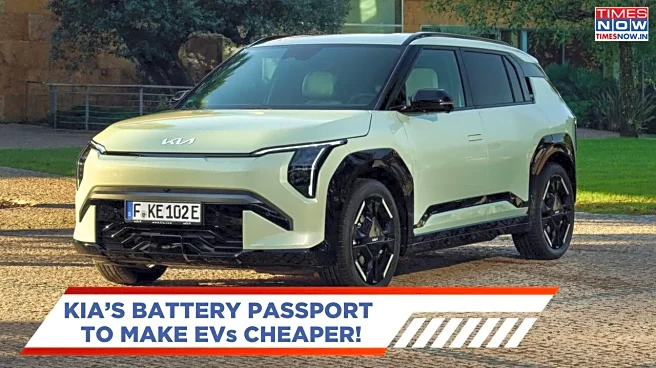Kia has become the first automaker to publicly test an electric vehicle (EV) battery passport system at the cell level. The new technology aims to make EV ownership more affordable. The pilot program,
conducted using a modified Kia EV3, incorporates advanced cell-level monitoring technology developed by Scottish firm Dukosi. Each battery cell is equipped with a small chip that tracks detailed performance data, including temperature, charge cycles, and overall health.
Also Read: Skoda Octavia RS Sold Out In India - What Made It An Instant Hit?
This data is stored in a secure digital “battery passport,” which can be accessed through the vehicle’s infotainment system. By providing accurate, real-time information about battery condition, the system can help technicians pinpoint faults more efficiently and reduce the need for costly full-module replacements. This transparency has the potential to build trust in the used EV market.
Also Read: Honda Unveils 2026 CB1000F Roadster – A Retro Spin On The CB1000 Hornet Platform
Being able to identify and replace specific faulty cells instead of entire battery packs could significantly cut repair costs and extend battery lifespan. Kia plans to expand this technology to its hybrid and fully electric lineup by February 2027 to comply with upcoming European Union regulations requiring digital battery passports. While brands like Volvo have already adopted passport systems, Kia’s trial goes a step further by operating at the individual cell level, providing a more detailed view of battery health and performance.













